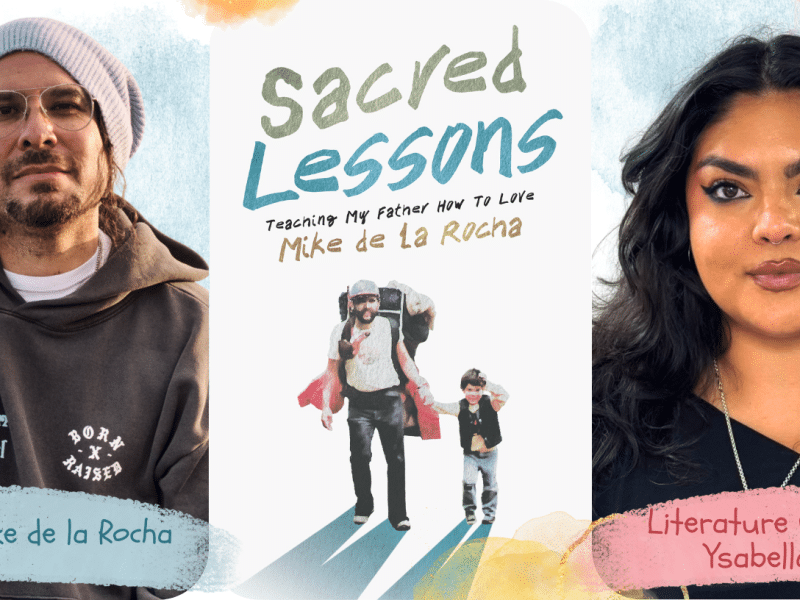Encanto: The Authentic Struggles Faced by Latina Daughters
Years ago, Encanto movie took over the airwaves with its infectious soundtrack, but the story it told is what cemented it into an important cultural inflection point.

Warning: Spoiler Alert.
I saw Encanto a while back, and yes I sobbed through it. Even if its lack of context, and explanation of what they’re running away from left me a bit confused, I couldn’t help but relate to all the Madrigal daughters. It’s a conversation starter for a lot of expectations placed on Latina daughters which as it turns out, is quite a heavy topic to take on.
Encanto tells the story of a familia with magic. Each of its family members has a special power such as super strength, the power to blossom plants, shapeshifting, and so on, except for one of them: Mirabel. Things get tricky and Mirabel discovers that their magic is running out, and she sets off on a quest to figure out how to save the magic. This quest ends up also showing Mirabel the burdens some of the family members have been silently carrying.
Luisa: Being of service and carrying all burdens
Encanto excels at talking about what we as Latina daughters go through. Luisa, the middle child with super strength, is literally and figuratively carrying the burdens of not only the Madrigals but also the entire community. In her song, she opens up about the pressure of handling everything and how being of service is the only identity she knows.
She sings that being the strong one pushes out the ability to reach out for help and wonders what it might be like to not always be working. She wonders what joy or even simple relaxation would look like.
This constant state of working and carrying is a state many Latinas can relate to. We’re usually the ones handling the problems, looking for solutions, and taking everything on because we’re capable of handling everything.
Our families rely on us, they put their hopes and aspirations on us and we just take everything in while spreading ourselves thin and living in a constant state of stress.
Luisa embodies this perfectly and shows us that this isn’t healthy and shouldn’t be considered “normal.”
Isabela: Being the perfect daughter
The oldest child, Isabela, is the “perfect” one. She can make beautiful plants bloom, but nothing else is allowed. The pressure of coming out with the same perfect required outcome forces her to do everything and sacrifice herself to get it. Familiar? She represents all Latina daughters who are held to unreasonably high standards, a topic we’ve discussed before.
In many Latino households making a mistake is not easily forgiven. We’re supposed to do everything right, make the best decisions for the family (no matter what that takes), and we must always rise above it all. Keeping up with the expectations is a tough job that creates a toxic state of self doubt, pressure, and loneliness. Things may look “perfect” to everyone from the outside, but on the inside it’s sad and lonely.
Encanto reminds us all that we can never forget that we must just allow our daughters to be who they are, and that there is no such thing as “perfect.”
Mirabel: Never being good enough for your family
On the opposite side of being the “perfect” daughter, is being the one that doesn’t meet the family expectations. Maybe you don’t follow in your parents’ footsteps, maybe your definition of success is not the same as theirs, or maybe you decide getting married or having kids isn’t for you. Mirabel was different because she didn’t inherit any magic so her character exposes the wounds of not being what your family expects, and how that turns into a constant state of feeling like you’ve let your family down.
This is a difficult topic that many of us can relate to, as the standards for women are usually based on sexists beliefs that aren’t aligned to what we want or need, making Mirabel a character that so many of us can relate to.
Pepa: Bottling all feelings in, except happiness
Pepa Madrigal’s mood changes the weather so if she’s upset, she can create a drizzle or even a hurricane which means that she has to control and try to avoid all negative feelings. When families experience an unusual amount of hardship, our coping mechanisms go on overdrive and were taught to be thankful for all the blessings we’ve got and to never express negative emotions or feelings.
While feeling and expressing gratitude is a healthy approach, it’s not healthy to pretend like negative feelings don’t exist, or that they can all be repressed on demand. It’s not human or healthy to be cheerful all the time. Pepa’s character shows us in a literal way how impossible it is to always try to be in a state of manufactured happiness and how it’s ok to allow and feel all the range of emotions, even if it means causing a little rain here and there.
So what happens to Latina daughters and how do we fix it
As we evolve from children and grow older we begin to notice in ourselves what these various expectations have caused in our lives and we’re left to deal with those wounds in our adulthood.
We are then stuck having to break the habits and expectations that our families often think are for our own good.
While this isn’t ideal, Encanto shows us that it’s necessary as we see Abuela finally evolve from her mistaken approaches.
Encanto is a sweet, fun, and loveable movie that easily breaks down some of the pressures of being a Latina daughter. It’s an opportunity to address how we’ve raised our daughters and what changes must be made in the future. It’s a must-watch for any family, and especially for Latino families.



